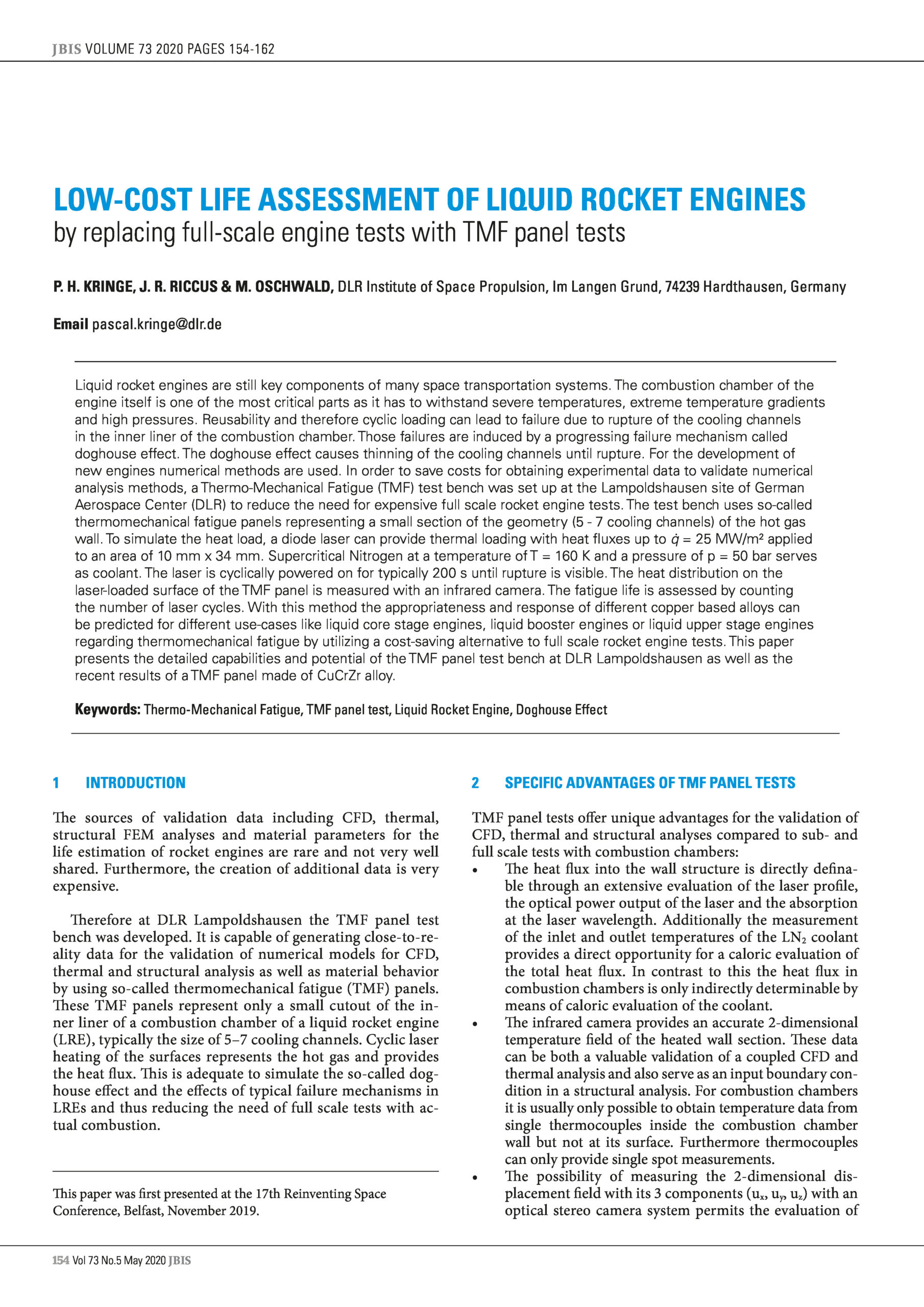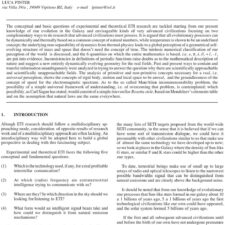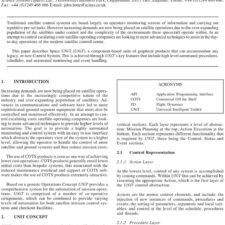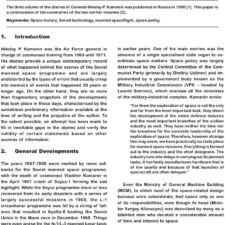Low-Cost Life Assessment of Liquid Rocket Engines by Replacing Full-Scale Engine Tests with TMF Panel Tests
£5.00
P. H. Kringe et al. (2020), JBIS, 73, pp.154-162
Refcode: 2020.73.154
Keywords: Thermo-Mechanical Fatigue, TMF panel test, Liquid Rocket Engine, Doghouse Effect
Abstract:
Liquid rocket engines are still key components of many space transportation systems. The combustion chamber of the engine itself is one of the most critical parts as it has to withstand severe temperatures, extreme temperature gradients and high pressures. Reusability and therefore cyclic loading can lead to failure due to rupture of the cooling channels in the inner liner of the combustion chamber. Those failures are induced by a progressing failure mechanism called doghouse effect. The doghouse effect causes thinning of the cooling channels until rupture. For the development of new engines numerical methods are used. In order to save costs for obtaining experimental data to validate numerical analysis methods, a Thermo-Mechanical Fatigue (TMF) test bench was set up at the Lampoldshausen site of German Aerospace Center (DLR) to reduce the need for expensive full scale rocket engine tests. The test bench uses so-called thermomechanical fatigue panels representing a small section of the geometry (5 – 7 cooling channels) of the hot gas . wall. To simulate the heat load, a diode laser can provide thermal loading with heat fluxes up to q = 25 MW/m2 applied to an area of 10 mm x 34 mm. Supercritical Nitrogen at a temperature of T = 160 K and a pressure of p = 50 bar serves as coolant. The laser is cyclically powered on for typically 200 s until rupture is visible. The heat distribution on the laser-loaded surface of the TMF panel is measured with an infrared camera. The fatigue life is assessed by counting the number of laser cycles. With this method the appropriateness and response of different copper based alloys can be predicted for different use-cases like liquid core stage engines, liquid booster engines or liquid upper stage engines regarding thermomechanical fatigue by utilizing a cost-saving alternative to full scale rocket engine tests. This paper presents the detailed capabilities and potential of the TMF panel test bench at DLR Lampoldshausen as well as the recent results of a TMF panel made of CuCrZr alloy.





